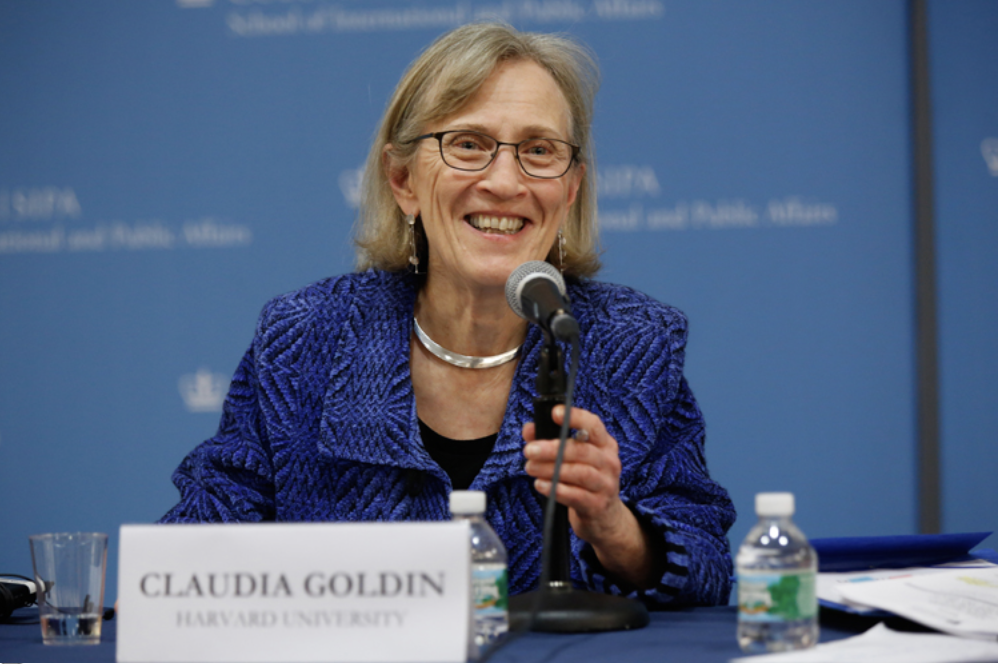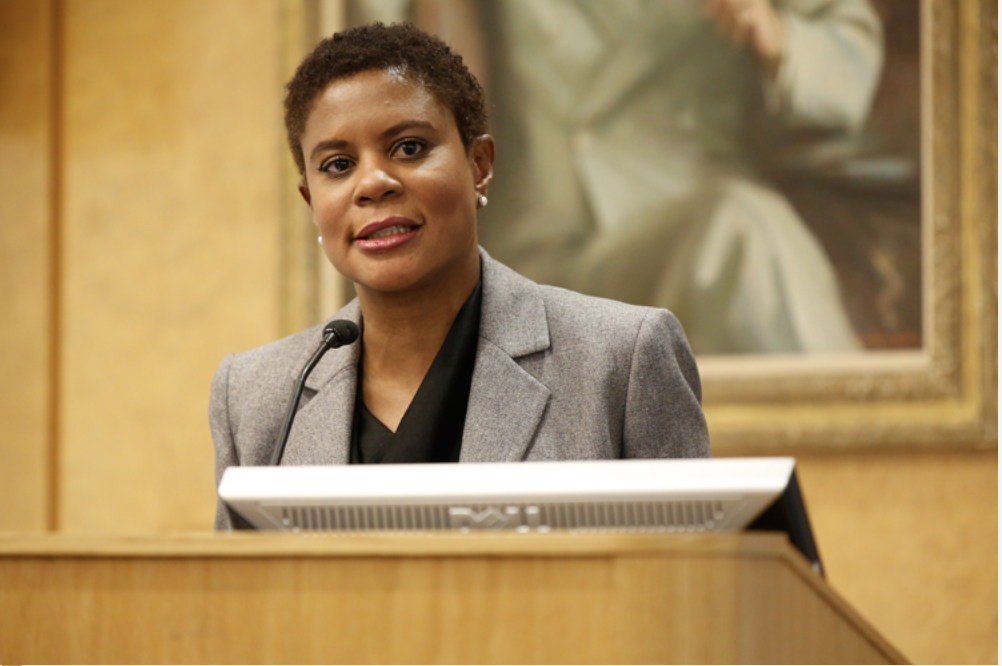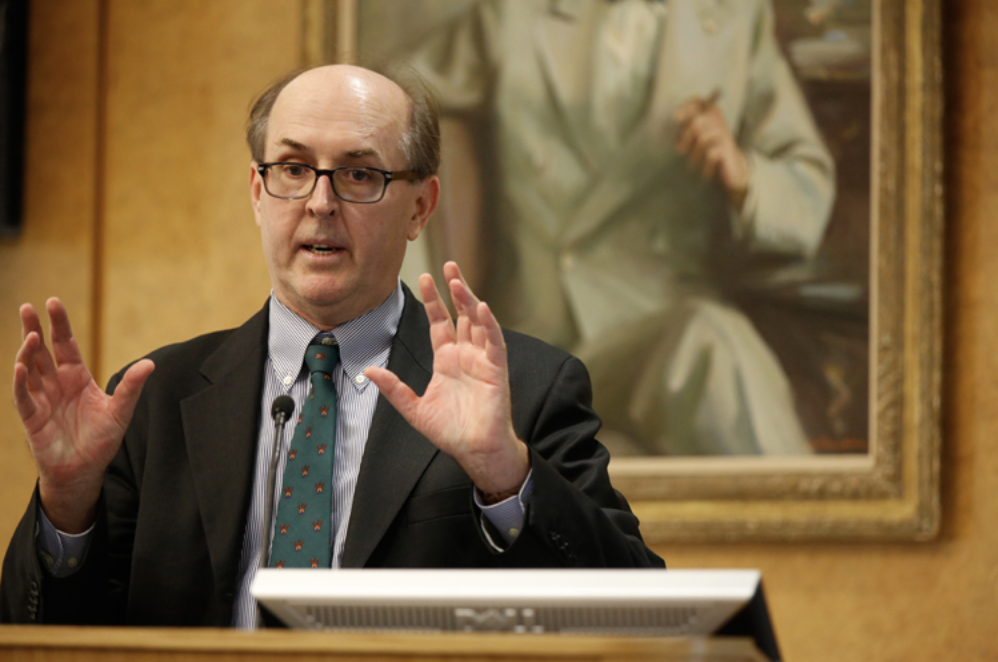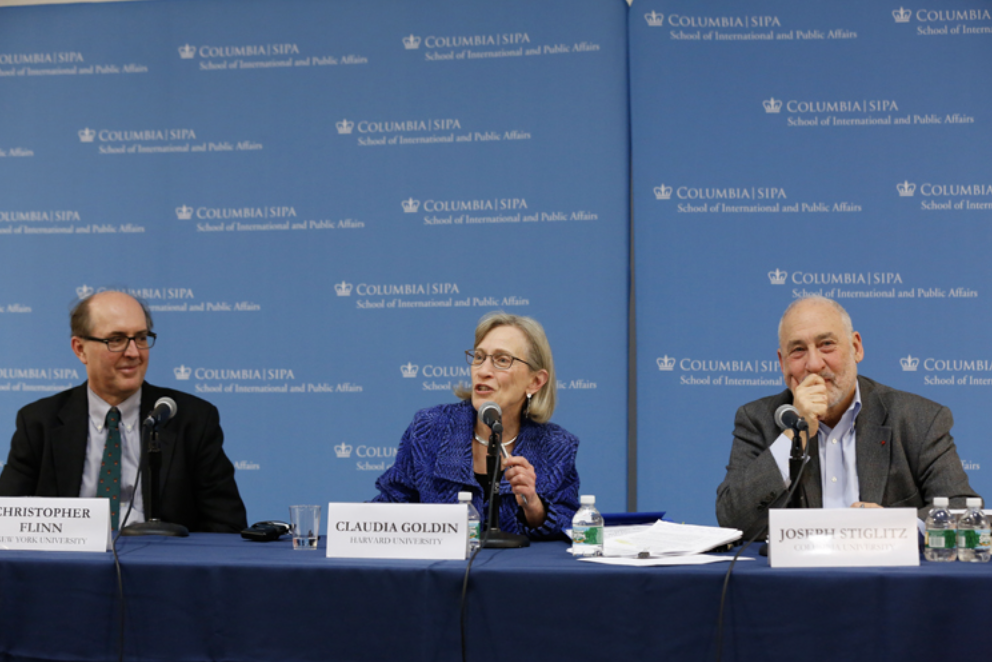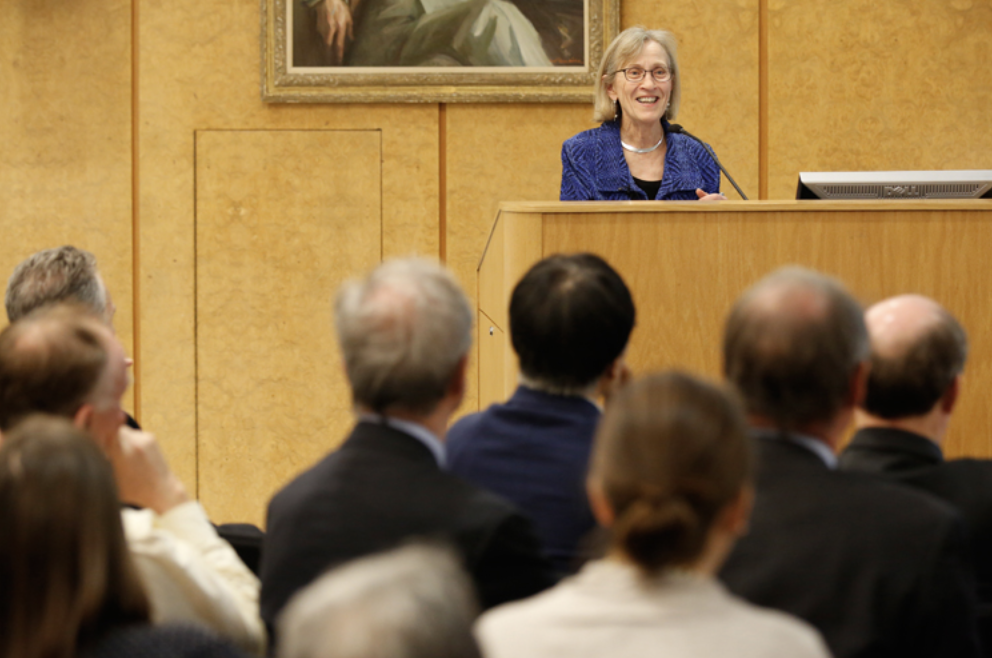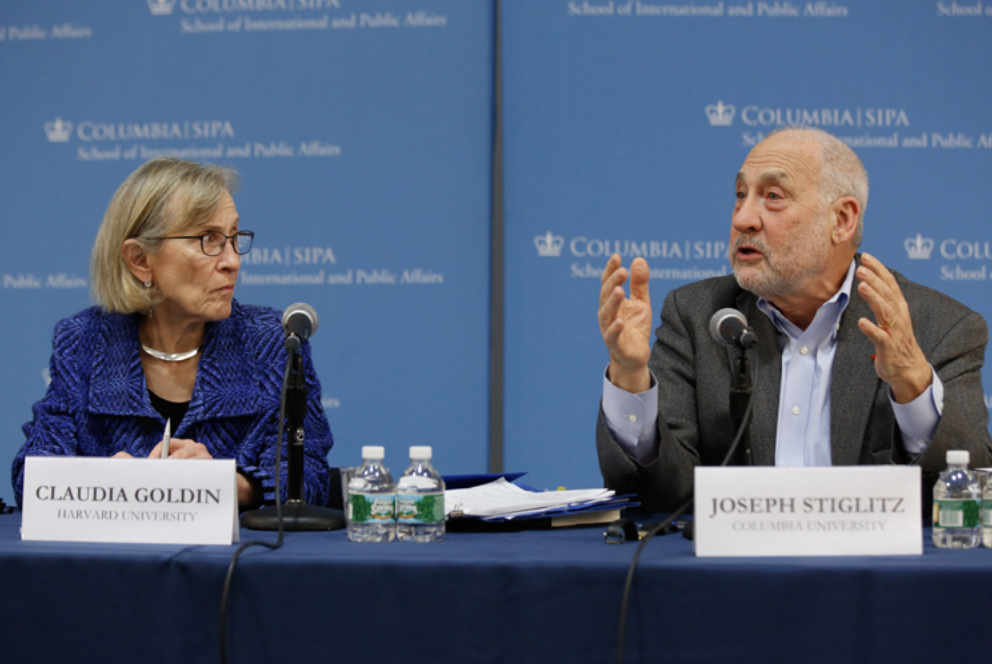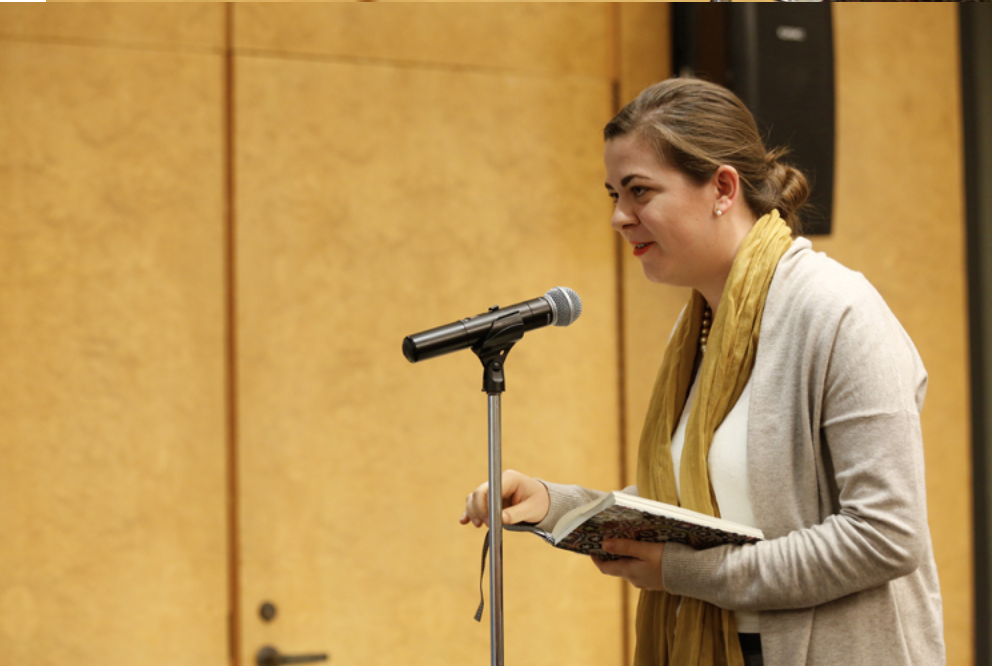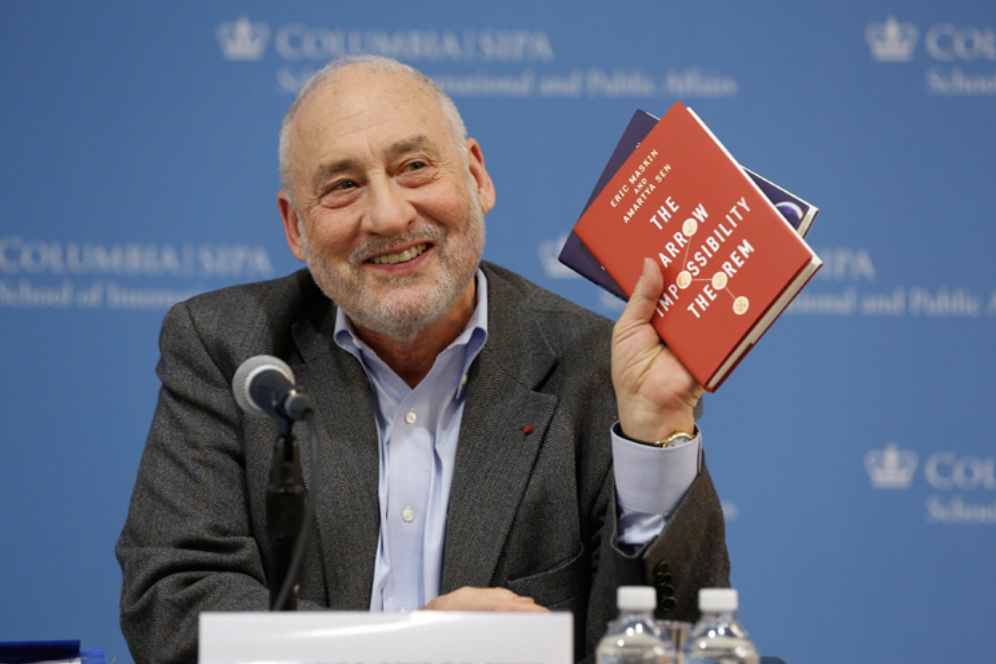The 8th Kenneth J. Arrow Lecture: Career and Family: Collision or Confluence
Christopher Flinn's Presentation
Please join us for the 8th Kenneth J. Arrow Lecture, entitled "Career and Family: Collision or Confluence", to be delivered by Claudia Goldin, Henry Lee Professor of Economics at Harvard University. Kenneth J. Arrow, Stanford University; Christopher Flinn, NYU, and Joseph Stiglitz, Columbia University, will serve as discussants.
In recent decades, many highly educated women have successfully navigated career roadblocks that had hindered equally gifted women in the past. More recently a greater fraction of college graduate women have achieved family as birthrates have been rising. What happens when there are more kids and more careers? Is it a collision course or a successful confluence of desires?
The Kenneth J. Arrow Lecture Series: Kenneth J. Arrows work has so deeply shaped the course of economics for the past sixty years that, in a sense, every modern economist is his student. His ideas, style of research, and breadth of vision have been a model for generations of the boldest, most creative, and most innovative economists. His work has yielded such seminal theorems as general equilibrium, social choice, and endogenous growth, proving that simple ideas have profound effects. The Kenneth J. Arrow Lecture Series highlights economists, from Nobel laureates to groundbreaking younger scholars, whose work builds on Arrows scholarship as well as his innovative spirit. The books in the series are an expansion of the lectures that are held in Arrow's honor at Columbia University.
This event is co-sponsored by the Center on Global Economic Governance, the Program for Economic Research, Columbia University Press, the Initiative for Policy Dialogue, and the Gender and Public Policy Specialization.
Speaker Biographies
Kenneth Arrow is the Joan Kenney Professor of Economics and Professor of Operations Research, emeritus at Stanford University. He is a Nobel Prize-winning economist whose work has been primarily in economic theory and operations, focusing on areas including social choice theory, risk bearing, medical economics, general equilibrium analysis, inventory theory, and the economics of information and innovation. He was one of the first economists to note the existence of a learning curve, and he also showed that under certain conditions an economy reaches a general equilibrium. In 1972, together with Sir John Hicks, he won the Nobel Prize in economics, for his pioneering contributions to general equilibrium theory and welfare theory. Professor Arrow has served on the economics faculties of the University of Chicago, Harvard and Stanford. In addition to the Nobel Prize, he has received the American Economic Association's John Bates Clark Medal. He is a member of the National Academy of Sciences and the Institute of Medicine. He received a BS from City College, an MA and PhD from Columbia University, and holds approximately 20 honorary degrees.
Christopher Flinn is a Professor of Economics at New York University and Senior Research Fellow at Collegio Carlo Alberto (Moncalieri, Italy). His main areas of research are labor and household economics, with a particular emphasis on the development of econometric methods for the estimation of models that can be used for policy analysis. One example is the analysis of minimum wage policy, described in his book, The Minimum Wage and Labor Market Outcomes. Other recent research, conducted with Daniela Del Boca and Matthew Wiswall, investigates the impact of government policies on the cognitive development of children and the welfare of children and parents. He received a B.A. in Sociology from the University of Wisconsin-Madison and a Ph.D in Economics from the University of Chicago.
Claudia Goldin is the Henry Lee Professor of Economics at Harvard University and Director of the NBER's Development of the American Economy program. She is an economic historian and a labor economist. Her wide-ranging research interprets the present through the lens of the past and explores the origins of current issues of concern. Her book with Larry Katz, The Race between Education and Technology, is a history of economic inequality and the role of educational advances. Her current work has focused on college women's achievement of career and family and the increase of women's employment in their mature and older years. Goldin was the president of the American Economic Association. She is a member of the National Academy of Sciences and the American Philosophical Society, and a fellow of numerous societies. In 2009 SOLE awarded Goldin the Mincer Prize for life-time contributions to the field of labor economics. Goldin received her B.A. from Cornell University and her Ph.D. from the University of Chicago.
Joseph E. Stiglitz is an American economist and a professor at Columbia University. He earned his PhD from MIT in 1967 and is a recipient of the Nobel Memorial Prize in Economic Sciences (2001) and the John Bates Clark Medal (1979). Stiglitz is also a former senior vice president and chief economist of the World Bank and a former member and chairman of the (US president's) Council of Economic Advisers. In 2000, Stiglitz founded the Initiative for Policy Dialogue, a think tank on international development based at Columbia University. Stiglitz has been a member of the Columbia faculty since 2001 and received that university's highest academic rank (university professor) in 2003. Based on academic citations, Stiglitz is the 4th most influential economist in the world today, and in 2011 he was named by Time magazine as one of the 100 most influential people in the world. Known for his pioneering work on assymetric information, Stiglitz's work focuses on income distribution, asset risk management, corporate governance, and international trade. He is the author of numerous books, and several bestsellers. His most recent title is The Great Divide: Unequal Societies and What We Can Do About Them (2015).

